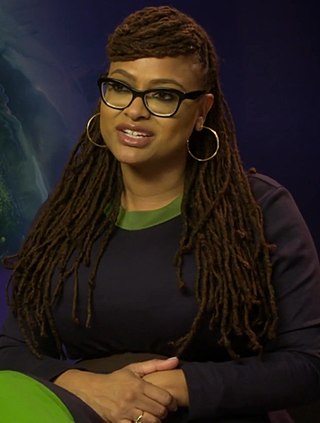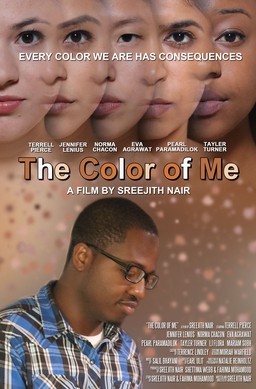Related Research Articles

Eurocentrism refers to viewing the West as the center of world events or superior to all other cultures. It is a type of ethnocentrism. The exact scope of Eurocentrism varies from the entire Western world to just the continent of Europe or even more narrowly, to Western Europe. When the term is applied historically, it may be used in reference to an apologetic stance toward European colonialism and other forms of imperialism.
Discrimination based on skin tone, also known as colorism or shadeism, is a form of prejudice and discrimination in which people of certain ethnic groups, or people who are perceived as belonging to a darker-skinned race, are treated differently based on their darker skin tone.
An African American is a citizen or resident of the United States who has origins in any of the black populations of Africa. African American-related topics include:
Kenneth Bancroft Clark and Mamie Phipps Clark were American psychologists who as a married team conducted research among children and were active in the Civil Rights Movement. They founded the Northside Center for Child Development in Harlem and the organization Harlem Youth Opportunities Unlimited (HARYOU). Kenneth Clark was also an educator and professor at City College of New York, and first Black president of the American Psychological Association.
American Girl is an American line of 18-inch (46 cm) dolls released on May 5, 1986 by Pleasant Company. The dolls portray eight- to fourteen-year-old girls of various ethnicities, faiths, nationalities, and social classes throughout different time periods throughout history. They are sold with accompanying books told from the viewpoint of the girls. Originally the stories focused on various periods of American history, but were expanded to include characters and stories from contemporary life. Aside from the original American Girl dolls, buyers also have the option to purchase Truly Me dolls, which vary by eye color, face mold, skin color, hair texture, and hair length. A variety of related clothing and accessories is also available. A service for ordering a custom-made doll with features and clothing specified by the owner dubbed Create Your Own, was introduced in 2017.

Ourika is an 1823 novel by Claire de Duras, originally published anonymously.
A Girl Like Me or Girl Like Me may refer to:
Racial passing occurs when a person who is classified as a member of a racial group is accepted or perceived ("passes") as a member of another racial group.
Internalized racism is a form of internalized oppression, defined by sociologist Karen D. Pyke as the "internalization of racial oppression by the racially subordinated." In her study The Psychology of Racism, Robin Nicole Johnson emphasizes that internalized racism involves both "conscious and unconscious acceptance of a racial hierarchy in which whites are consistently ranked above people of color." These definitions encompass a wide range of instances, including, but not limited to, belief in negative stereotypes, adaptations to white cultural standards, and thinking that supports the status quo.
A Girl like Me is a 2005 documentary by Kiri Davis. The seven-minute documentary examines such things as the importance of color, hair and facial features for young African American women. It won the Diversity Award at the 6th Annual Media That Matters film festival in New York City, and has received coverage on various American media sources, such as CNN, ABC, NPR. The documentary has been shown on HBO. The documentary was made as part of Reel Works Teen Filmmaking.
Laurie Simmons is an American artist, photographer and filmmaker. Since the mid-1970s, Simmons has staged scenes for her camera with dolls, ventriloquist dummies, objects on legs, and people, to create photographs that reference domestic scenes. She is part of The Pictures Generation, a name given to a group of artists who came to prominence in the 1970s. The Pictures Generation also includes Cindy Sherman, Barbara Kruger, and Louise Lawler.

Ava Marie DuVernay is an American filmmaker, screenwriter, and producer. She is a recipient of a Primetime Emmy Award, two NAACP Image Award, a BAFTA Film Award, and a BAFTA TV Award, as well as a nominee of an Academy Award and Golden Globe. In 2011, she founded her independent distribution company ARRAY.

Dark Girls is a 2011 documentary film by Bill Duke and D. Channsin Berry. It documents colorism within the African American community, a subject still considered taboo by many black Americans. The film contains interviews of African American women describing the role colorism has played in their lives, with notable African Americans including Viola Davis also detailing her experience. It also reports on a new version of the 1940s black doll experiment by Kenneth and Mamie Clark, which proved that black children had internalized racism by having children select a white or a black doll based on questions asked. In the updated version, black children favored light-skinned dolls over dark-skinned dolls.
The feminine beauty ideal is a specific set of beauty standards regarding traits that are ingrained in women throughout their lives and from a young age to increase their perceived physical attractiveness. It is experienced by many women in the world, though the traits change over time and vary in country and culture.

Patricia A. Turner is an American folklorist who documents and analyzes the stories that define the African American experience. A professor in World Arts and Cultures/Dance and African American Studies at UCLA, Turner is the author of five books on topics ranging from rumors, legends and conspiracy theories to African American quilters and images of African Americans in popular culture. She is the 2021 recipient of the Linda Dégh Lifetime Achievement Award.

Sheila Pree Bright is an Atlanta-based, award-winning American photographer best known for her works Plastic Bodies, Suburbia, Young Americans and her most recent series #1960Now. Sheila is the author of #1960Now: Photographs of Civil Rights Activist and Black Lives Matter Protest published by Chronicle Books.

Mamie Phipps Clark was a social psychologist who, along with her husband Kenneth Clark, focused on the development of self-consciousness in black preschool children. Clark was born and raised in Hot Springs, Arkansas. Clark received her post-secondary education at Howard University, and she earned her bachelor's and master's degrees there.
Colorism in the Caribbean describes discrimination based on skin tone, or colorism, in the Caribbean.

The Color of Me is a 2018 American family drama fantasy film that is written and directed by Sreejith Nair. It is about an adopted African American boy, Lewis Clark, who falls in love with a girl whose skin magically changes color every hour. The film received critical acclaim and several accolades at its international festival run across the United States. It premiered at the Los Angeles CineFest with subsequent screenings at various film festivals. The film was chosen as an official selection at the Amazon Prime Studios first All Voice Film Festival 2019.
The Marvelous World of Shani, also known as Shani & Friends or simply Shani, was a fashion doll line manufactured by the American toy company Mattel, Inc. and launched in 1991. The principal designer of the dolls was longtime Mattel toy designer Kitty Black Perkins, also responsible for designing 1980's First Black Barbie doll, and many other African American dolls in the Barbie line.
References
- ↑ New 'Doll Test' Produces Ugly Results Archived 2006-11-12 at the Wayback Machine , August 16, 2006 Baltimore Times.
- ↑ Official Web Page: Kiri Davis Biography. Accessed August 27, 2007.